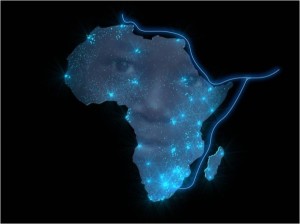 While there have been infrastructure investments in Africa over the last eight years, most Internet content accessed in local markets is still hosted abroad – a topic that is being addressed this week at a meeting in Dakar, Senegal.
While there have been infrastructure investments in Africa over the last eight years, most Internet content accessed in local markets is still hosted abroad – a topic that is being addressed this week at a meeting in Dakar, Senegal.
African Internet Service Providers, content distribution networks, infrastructure providers, government network managers and regulators are gathering for the Africa Peering and Interconnection Forum (AfPIF), an initiative of the Internet Society, which seeks to foster interconnection and content sharing to reduce connectivity costs.
“In 2011, an OECD report highlighted that over 99.5 percent of interconnections are formed using ‘handshake’ agreements at peering events – AfPIF is one such key event, created to foster a community of practice on issues related to peering and interconnection,” said Sofie Maddens, Senior Director, Global Services, Internet Society.
In the forum keynote speech on the future of content hosting in Africa, Mathieu Paonessa of Jaguar Networks compared some of the policy and cross-border issues in Africa with Europe where operations within the region are seamless.
“One of the major obstacles of hosting is the requirements by governments that investors must set up companies in each country they want to offer services. The Democratic Republic of Congo and Congo Brazzaville have been unable to cross connect and share infrastructure, yet the capital cities are separated by a river,” he said.
Policy issues are hampered by the slow pace of amending existing laws and because ICT sectors in some countries have developed at a faster rate than others. For instance, Nigeria’s “Nollywood” is the third-largest film producer globally, after the U.S. and India.
Plus, most of the infrastructure on the continent cannot meet the demands of online users, so most of the content is hosted abroad.
“Local content is essential to local industry and jobs, and ultimately boosts the resiliency of the economy,” Madden said. “The topics discussed at AfPIF are critical to creating an environment that supports the ongoing development of the Internet in the region.”
“During last year’s AfPIF meeting, we met with the team from Liquid Telecom and explained the challenges the gaming community had in Uganda. They agreed to host our servers and now the community has grown and set up other businesses related to gaming,” said Kyle Spencer, director of Uganda Internet Exchange and a founder of gamersnights.com.
With support from Liquid Telecom, the multiplayer gaming community was able to attract players from Kenya, Tanzania, and South Africa, among other countries. The reduced latencies have encouraged players to explore ways to improve and tweak the games to suit their local settings.
In the next two days, discussions will delve into details of how to set up bilateral agreements, how to attract more networks to the Internet Exchange Point, and how to measure and analyze traffic coming from the region.





